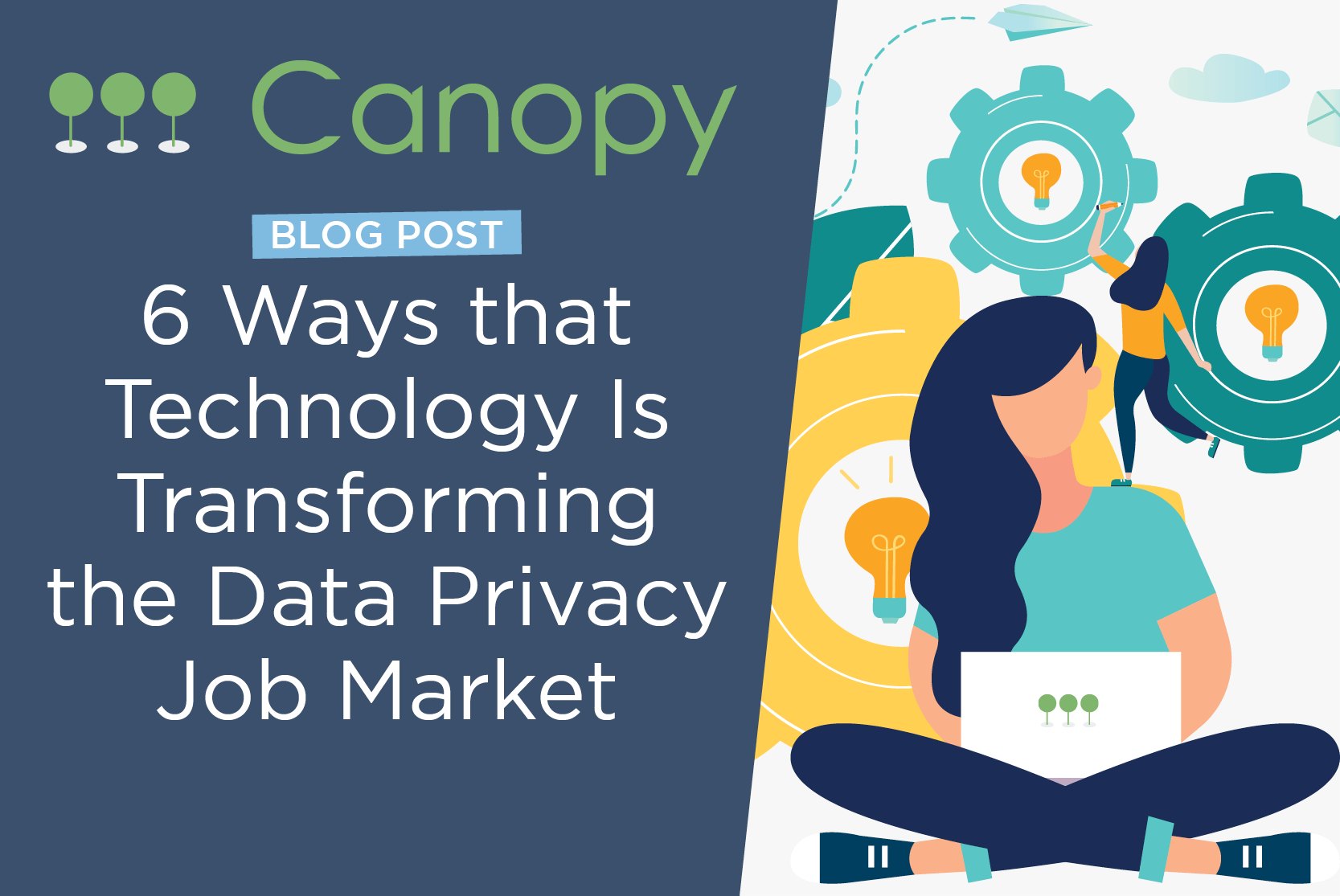On Data Privacy Day 2022, 🌳🌳🌳Canopy COO Adi Elliott joined three other industry experts to discuss how technology is affecting the job market for data privacy professionals at all stages of their careers. You can watch the webinar on LinkedIn.
Jared Coseglia, CEO of TRU Staffing Partners, moderated this powerhouse panel, which also featured Jodi Danels, CEO of Red Clover Advisors, and Jess Barre, VP of Privacy Recruitment and Account Management for TRU Staffing Partners.
Panelists addressed six questions about the current state of privacy technology and how they foresee it evolving in the future:
1. What can technology do for privacy professionals and initiatives today, and in the future?
The group of experts agreed that most corporate privacy initiatives are currently in the infancy stages. Organizations in this stage require data breach software, remediation, and data governance training at first. Then, they are looking to achieve and maintain compliance with all regulations in countries where they do business. These organizations need human expertise to install software, maintain it, and strategize how best to use it. Five years from now, these same companies will need advanced privacy technology to perform tactical procedures to the highest possible level.
Barre mentioned that data privacy doesn’t belong to one particular person or group in an organization; it touches everyone at every level. Therefore, technology needs to be extremely accessible in the future so that everyone can use it without burdensome training requirements.
2. How should savvy privacy professionals use technology to increase and grow their privacy programs?
Skilled privacy pros should move toward collaborative tools as their programs mature. Elliott mentioned how important it is to avoid a scorched-earth process in trying to wrangle problem areas. No software will cure every ailment. No number of endpoints will suffice. Audits and collaboration are important. Process and training programs will document problems. But influencing positive change really means using the latest technology along with skilled operational strategies to prevent data from leaking out or being lost due to negligence.
3. What are the gaps and failures in technology that hinder privacy programs?
Elliott pointed out that the major problem area is getting organizations to locate all of their data. Since the pandemic started, data is far more scattered on home computers, removable drives, and internet storage sites. Daniels said there was a strong need for tools to support individual and customer rights through workflows, integrations, and customer opt-out choices.
4. Where can technology streamline parts of the compliance process?
Compliance regulations are only going to become more stringent as threats evolve and endanger consumer data. A step toward being ready for data or privacy breaches and compliance with applicable regulations lies in researching and adopting new technologies, particularly for analyzing data and automating processes. Compliance regulations now benefit from new technologies like artificial intelligence, cloud-based retention services, and machine learning to augment human strategy and replace old manual data management tactics. Using these tools helps to identify risks more quickly, enabling organizations to be compliant, locate trends, flag issues, and remediate quickly.
5. Which routine tasks will privacy professionals be able to offload using technology?
Daniels said there were currently several things privacy technology automation offers. The first is the ability to remove or lessen tedious manual tasks and guesswork of meeting regulations and compliance. Second is the added speed of locating data, data breaches, and determining how to close loopholes. Third is flagging potential problem areas and risks to know what an organization needs to change.
6. How does technology impact privacy job skillsets – both technical and program-based – needed in the privacy space?
The panel unanimously agreed that the number one skill for privacy job seekers is the ability to influence others in their organization to effect change. An ability to build cross-functional relationships and evangelize the importance of data privacy practices are exactly what employers seek in this job market. Other factors include natural curiosity about and strong interest in how technology can improve organizational privacy processes. Lastly, being “multilingual” in technology terms as well as human conversation is key to winning over all levels of an organization. Tech-speak, so to speak, is not as highly valued in this privacy job market.
This blog post is republished from TRU Staffing Partners.


